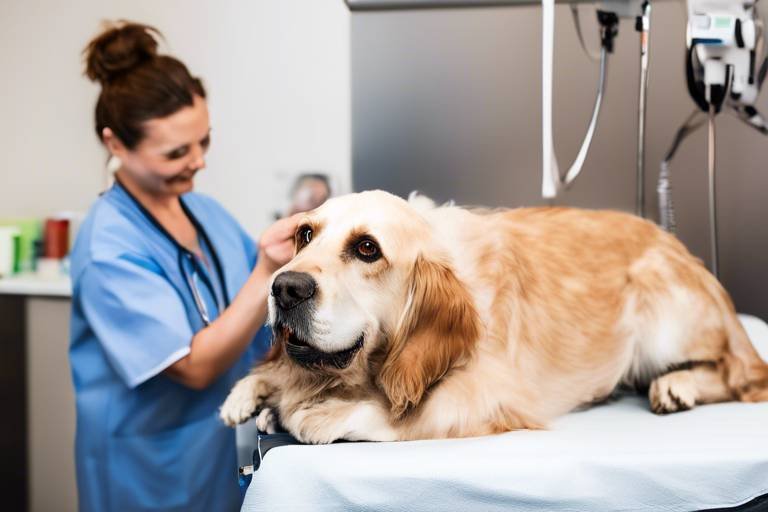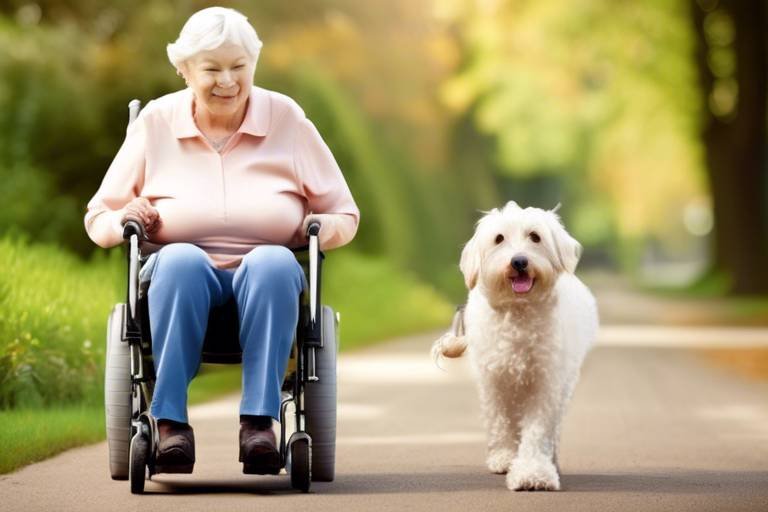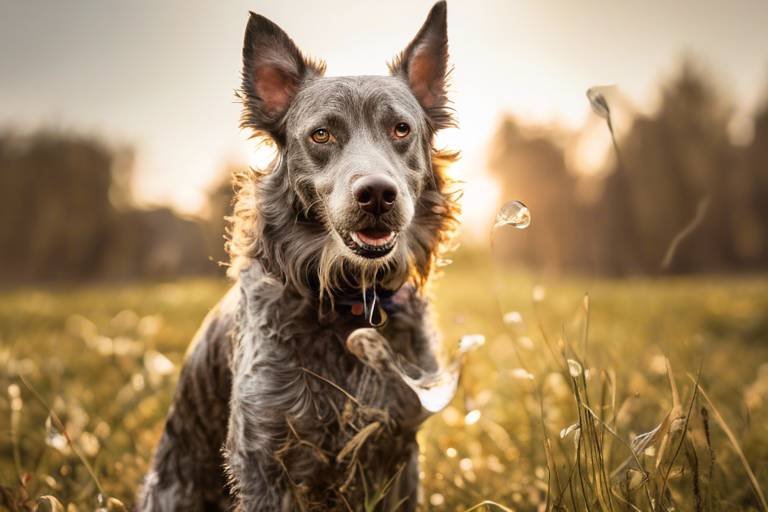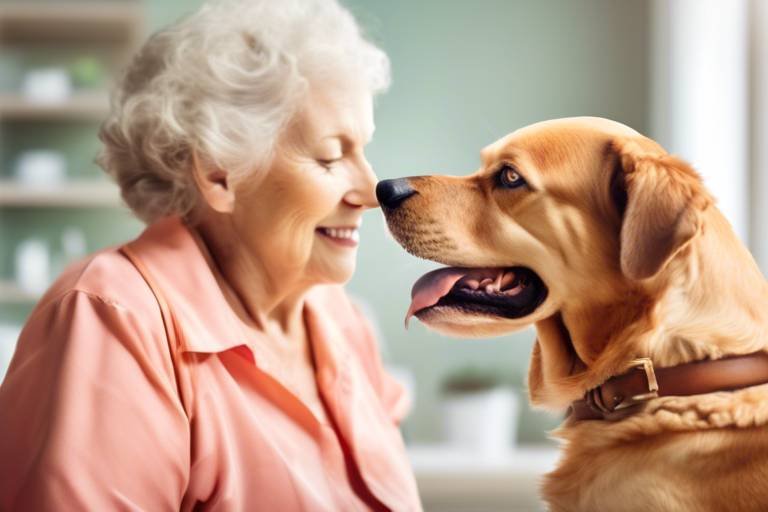Caring for Senior Pets with Skin Issues
As our beloved furry companions age, they often face a myriad of challenges, particularly when it comes to their skin. Just like humans, senior pets can experience a range of skin issues that can affect their comfort and quality of life. It's essential for pet owners to be aware of these conditions, understand their underlying causes, and know how to provide effective care. By doing so, we can enhance the well-being of our aging pets and ensure they continue to lead happy, fulfilling lives.
Senior pets are susceptible to a variety of skin problems due to natural aging processes. These issues can manifest in different ways, including dryness, itchiness, and even infections. The skin of older pets tends to be less resilient, making it more vulnerable to irritants and pathogens. It’s important to recognize that the skin is not just a barrier; it serves as an indicator of overall health. When we notice changes in our pet's skin, it’s a signal that we need to pay attention. Ignoring these signs can lead to more severe health complications down the line.
One of the most common skin issues in senior pets is allergies. Allergies can stem from various sources, including environmental factors like pollen or food ingredients. For instance, if your pet is constantly scratching or licking a specific area, it could indicate an allergic reaction. Identifying these triggers is crucial for effective treatment. Additionally, senior pets may be more prone to bacterial and fungal infections, which can complicate their skin health. A weakened immune system can make it difficult for them to fight off these infections, so prompt veterinary attention is necessary.
Preventative care is vital for managing skin issues in senior pets. Regular veterinary check-ups can help catch problems early, while proper grooming can keep their skin healthy and free from irritants. Grooming is not just about aesthetics; it plays a critical role in maintaining skin health. Regular brushing can remove dead hair and skin cells, while appropriate bathing can help keep the skin clean and hydrated. Furthermore, a balanced diet tailored to your pet’s specific needs can support their skin health from the inside out.
In conclusion, caring for senior pets with skin issues requires a proactive approach. By understanding the common skin conditions they face and implementing effective care strategies, we can significantly improve their comfort and quality of life. Remember, your senior pet relies on you to advocate for their health, and with the right knowledge and tools, you can make a world of difference in their golden years.
- What are the most common skin issues in senior pets? Common skin issues include allergies, infections, and tumors.
- How can I tell if my pet has a skin problem? Look for signs such as excessive scratching, redness, swelling, or unusual odors.
- What should I do if I suspect my pet has a skin condition? Schedule a visit to your veterinarian for a thorough examination and appropriate treatment.
- How often should I groom my senior pet? Regular grooming is recommended, ideally at least once a week, to maintain skin health.
- Can diet affect my pet's skin health? Yes, a balanced diet can significantly influence skin health and help manage allergies.

Understanding Skin Issues in Senior Pets
This article explores the common skin issues faced by senior pets, their causes, and effective care strategies to enhance their comfort and well-being.
As our furry companions age, their bodies undergo a myriad of changes, and unfortunately, their skin is no exception. is crucial for pet owners who want to ensure their beloved animals live a comfortable and healthy life. Just like humans, pets experience a decline in skin elasticity and moisture as they grow older, making them more susceptible to various skin conditions. Imagine your pet's skin as a well-loved book; with time, the pages can become worn, faded, and fragile. This deterioration can lead to a range of problems, from simple dryness to more complex infections.
One of the primary reasons for skin issues in senior pets is the natural decline in their immune system function. As they age, their bodies may struggle to fend off irritants and pathogens that younger pets can easily combat. Additionally, hormonal changes can also contribute to skin problems, leading to conditions such as seborrhea or even hormonal imbalances that manifest through skin irritations. It's essential to keep an eye out for changes in your pet's skin and coat, as these can be early indicators of underlying health issues.
Moreover, just like a garden that requires regular care to flourish, senior pets need consistent attention to their skin health. Factors such as diet, grooming, and environmental conditions play significant roles in the overall condition of their skin. For example, a diet lacking in essential fatty acids can lead to dry, flaky skin, while improper grooming can exacerbate issues like matting and irritation. Therefore, being proactive and knowledgeable about your pet's skin health is not just beneficial; it’s necessary.
When considering skin issues, it's also important to recognize that senior pets may not always show obvious signs of discomfort. They might not scratch or lick excessively, but subtle changes like a dull coat, scaly patches, or even changes in behavior can indicate underlying problems. This is where the importance of regular veterinary check-ups comes into play. Your veterinarian can help identify skin conditions that may not be immediately apparent and suggest appropriate treatments or preventative measures.
In conclusion, understanding skin issues in senior pets is a multifaceted approach that requires attention to detail, regular veterinary care, and a commitment to providing a supportive environment. By being aware of the potential problems and early signs, you can help your furry friend navigate the golden years with comfort and joy.
Various skin conditions affect senior pets, including allergies, infections, and tumors. Identifying these conditions early can lead to better management and treatment options.
Allergies can manifest as itching, redness, or inflammation in senior pets. Recognizing the signs and understanding triggers is essential for effective treatment.
Environmental factors such as pollen, dust, and mold can trigger allergic reactions. Identifying these allergens can help reduce exposure and alleviate symptoms.
Food allergies are common in senior pets, often leading to gastrointestinal issues and skin irritations. A proper diet and elimination trials can help identify problematic ingredients.
Bacterial and fungal infections are prevalent in senior pets due to weakened immune systems. Prompt diagnosis and treatment are vital for recovery and comfort.
Implementing preventative care measures can significantly reduce the risk of skin issues in senior pets. Regular check-ups and proper hygiene play a crucial role.
Routine veterinary visits allow for early detection of skin problems. Regular examinations can help maintain your pet's skin health and overall well-being.
Grooming is essential for maintaining healthy skin in senior pets. Regular brushing and bathing can help prevent matting and skin infections, promoting comfort and hygiene.
- What are the most common skin issues in senior pets? Common skin issues include allergies, infections, and tumors.
- How can I tell if my senior pet has a skin problem? Look for signs like itching, redness, flaking, or changes in behavior.
- What preventative measures can I take for my senior pet's skin health? Regular vet check-ups, proper grooming, and a balanced diet are key.
- Are there specific diets that help with skin issues? Diets rich in essential fatty acids can improve skin health.
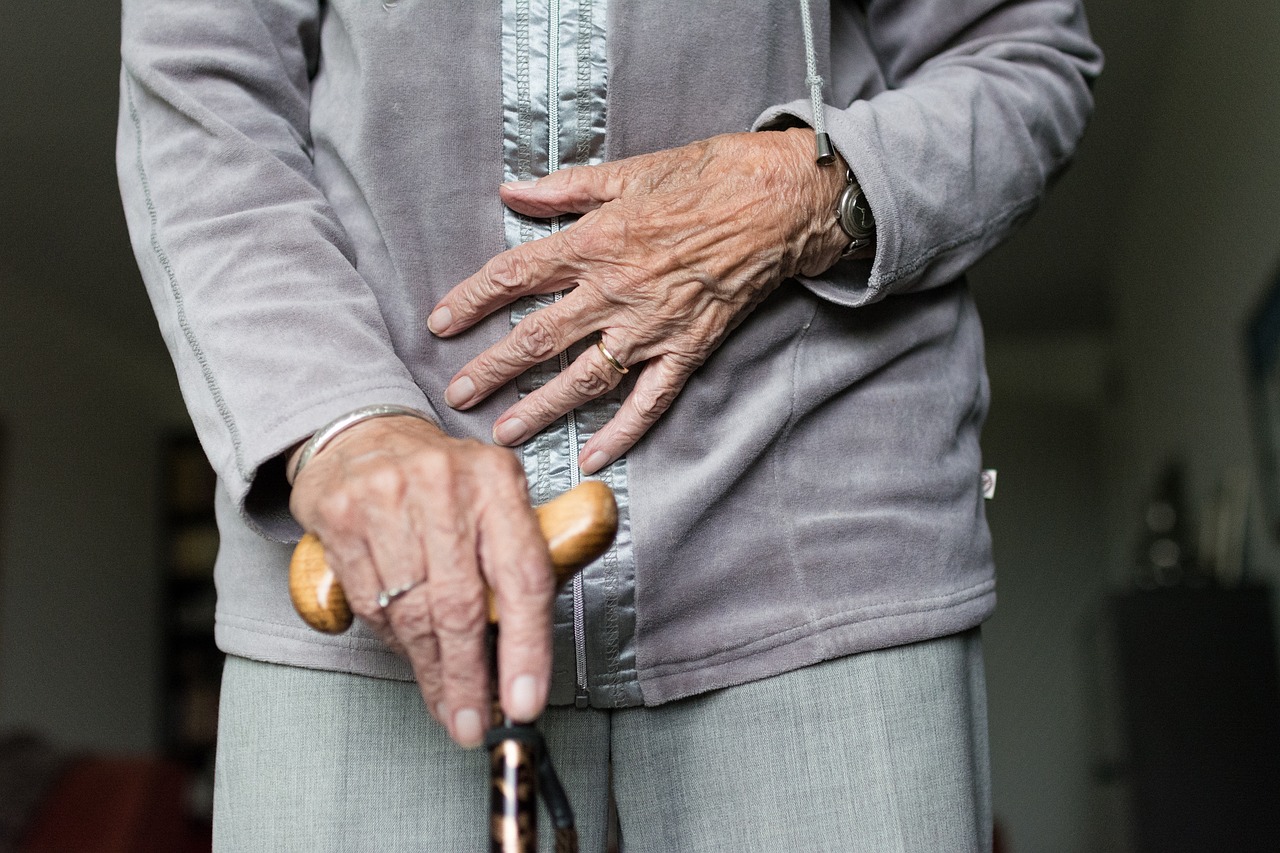
Common Skin Conditions
When it comes to our beloved senior pets, skin issues can often feel like a pesky shadow that follows them into their golden years. Just like us, as pets age, their skin undergoes changes that can lead to a variety of common skin conditions. Recognizing these conditions early is crucial for ensuring that our furry friends remain comfortable and happy. The most prevalent skin issues in senior pets include allergies, infections, and tumors, each with its own set of symptoms and treatment options.
Allergies, for instance, are one of the most common culprits behind skin problems in older pets. These can be triggered by environmental factors or even food ingredients, leading to discomfort that manifests as itching, redness, or inflammation. Imagine how frustrating it must be for them to scratch incessantly, unable to find relief! Understanding the triggers is essential, as it can lead to effective treatment and a happier pet.
Next on the list are infections, which can be particularly concerning for senior pets due to their weakened immune systems. Bacterial and fungal infections can take hold quickly, making it vital for pet owners to be vigilant. Symptoms may include unusual odors, discharge, or changes in skin texture. Prompt diagnosis and treatment can make all the difference in your pet's recovery and comfort. Remember, the sooner you catch these issues, the better the outcome for your furry friend!
Lastly, tumors can also develop on the skin of senior pets. While not all skin growths are cancerous, any new or changing lumps should be examined by a veterinarian. Early detection is key, as it can lead to more effective treatment options. It’s always better to err on the side of caution when it comes to our pets' health!
In summary, being aware of these common skin conditions—allergies, infections, and tumors—is an essential part of caring for senior pets. Regular check-ups and attentive observation can help catch these issues before they escalate into something more serious. Remember, our furry companions rely on us to keep them comfortable and healthy, so let’s stay informed and proactive!
- What are the signs of skin allergies in senior pets? Look for excessive scratching, redness, and inflammation. If you notice these symptoms, consult your veterinarian.
- How can I prevent skin infections in my senior pet? Regular grooming and maintaining proper hygiene can significantly reduce the risk of infections.
- Are all skin tumors in pets cancerous? Not all skin tumors are cancerous, but any new or changing growth should be evaluated by a veterinarian.
Allergies in Older Pets
As our beloved furry companions age, they often develop a variety of health issues, and allergies are among the most common concerns. Allergies in older pets can manifest in many ways, including persistent itching, redness, or inflammation of the skin. Imagine a dog scratching incessantly, looking like they’re trying to dig up the entire yard! This discomfort can lead to a significant decline in their quality of life. Recognizing the signs of allergies is essential for pet owners, as early intervention can make a world of difference.
There are two primary types of allergies that affect senior pets: environmental allergies and food allergies. Environmental allergies may arise from common irritants such as pollen, dust mites, or mold. Just like humans, pets can have sensitivities to these allergens that can cause them to feel uncomfortable. On the other hand, food allergies can lead to gastrointestinal issues and skin irritations, making it crucial to identify any problematic ingredients in their diet.
When it comes to environmental allergies, pet owners should be vigilant about their surroundings. For instance, during the spring, pollen counts can soar, and pets that spend a lot of time outdoors may be more susceptible to allergic reactions. Keeping an eye on the weather and pollen forecasts can help owners make informed decisions about outdoor activities. Moreover, regular cleaning of the home to reduce dust and mold can also alleviate symptoms. Here are some common environmental allergens to watch out for:
- Pollen from trees, grasses, and weeds
- Dust mites found in bedding and carpets
- Mold spores from damp areas
Food allergies, however, can be a bit trickier to diagnose. Many pet owners may not realize that their pet's skin issues could be linked to what’s in their bowl. Symptoms of food allergies can include not just skin irritations but also gastrointestinal distress, such as vomiting or diarrhea. To pinpoint food allergies, a process called elimination trial is often recommended. This involves feeding your pet a limited ingredient diet for a few weeks and then gradually reintroducing potential allergens to see which ones trigger a reaction.
Understanding the specific triggers for your senior pet's allergies is essential for effective treatment. Consulting with a veterinarian can provide insights into the best management strategies, which may include antihistamines, corticosteroids, or even specialized diets. The goal is to keep your furry friend comfortable and happy, ensuring their golden years are truly golden.
Environmental Allergies
When it comes to our beloved senior pets, environmental allergies can feel like an uninvited guest at a party—persistent, annoying, and hard to ignore. Just like humans, pets can develop sensitivities to various environmental factors as they age. These allergens can include pollen, dust mites, and mold spores, all of which can wreak havoc on your furry friend's skin and overall comfort. Imagine your pet scratching incessantly, their skin red and inflamed, all because of something as simple as a change in the air. It's heartbreaking, isn't it?
Recognizing the signs of environmental allergies is crucial for effective management. Common symptoms include itchiness, redness, and inflammation of the skin, as well as excessive licking or chewing of the paws. If you notice your pet exhibiting these behaviors, it may be time to investigate further. One effective way to identify triggers is through a process called elimination. This involves tracking your pet's symptoms and the environmental conditions during flare-ups, much like solving a mystery—who's the culprit behind the discomfort?
To help you better understand the common environmental allergens, here’s a quick reference table:
| Allergen | Common Sources | Symptoms |
|---|---|---|
| Pollen | Grass, trees, weeds | Itchy skin, sneezing |
| Dust Mites | Household dust, bedding | Redness, inflammation |
| Mold Spores | Decaying leaves, damp areas | Itching, ear infections |
Reducing your pet's exposure to these allergens is key to alleviating their discomfort. Regular cleaning of your home, including vacuuming and washing bedding, can help minimize dust mites and mold. During high pollen seasons, keeping your pet indoors during peak hours can also make a significant difference. Think of it as creating a safe haven for your furry friend—a sanctuary where they can relax without the threat of itchy skin or respiratory issues.
In conclusion, understanding and managing environmental allergies in senior pets is essential for their well-being. By being proactive and observant, you can help ensure that your furry companions live their golden years with comfort and joy, free from the nagging itch of allergies.
Q1: How can I tell if my pet has environmental allergies?
A1: Look for signs such as excessive scratching, redness, inflammation, or licking of the paws. If you notice these symptoms, consult your veterinarian for a proper diagnosis.
Q2: What can I do to reduce allergens in my home?
A2: Regular cleaning, including vacuuming and washing pet bedding, can help reduce dust and mold. Consider using air purifiers to improve indoor air quality.
Q3: Are there specific times of the year when allergies are worse for pets?
A3: Yes, many pets experience heightened allergies during spring and fall when pollen counts are high. Monitoring your local pollen forecast can help you manage your pet's exposure.
Q4: Can I give my pet medication for allergies?
A4: Always consult your veterinarian before giving your pet any medication. They can recommend appropriate treatments based on your pet's specific needs.
Food Allergies
Food allergies in senior pets can be a perplexing puzzle for pet owners. Imagine your furry friend, who has been a loyal companion for years, suddenly experiencing discomfort and irritability due to something as fundamental as their food. These allergies often manifest as skin irritations, gastrointestinal issues, or even behavioral changes. It's essential to recognize that as pets age, their bodies can become more sensitive to certain ingredients, making it crucial to monitor their diet closely. Common symptoms of food allergies in senior pets include:
- Itchy skin or excessive scratching
- Red or inflamed skin, particularly around the ears and paws
- Gastrointestinal upset, such as diarrhea or vomiting
- Ear infections that seem recurrent
Identifying food allergies can be challenging, as the symptoms may not appear immediately after consuming the offending ingredient. Often, it requires a process of elimination to pinpoint the cause. This means you might need to switch your pet to a hypoallergenic diet or a novel protein source that they haven't eaten before. For instance, if your dog has been munching on chicken-based kibble for years, introducing a diet based on kangaroo or duck could be a game-changer. This method allows you to observe any changes in their condition, helping you determine if a specific ingredient is the culprit.
Another effective strategy is to conduct an elimination trial. This involves feeding your pet a limited ingredient diet for a period of time, usually around 8 to 12 weeks, to see if their symptoms improve. During this time, it’s crucial to avoid any treats or table scraps that could introduce new allergens. If the symptoms subside, you can gradually reintroduce different foods one at a time to identify which ingredient triggers the allergic reaction. It’s like being a detective, piecing together clues to solve the mystery of your pet's discomfort.
Consulting with your veterinarian is vital during this process. They can recommend suitable diets and guide you through the elimination process, ensuring that your pet receives balanced nutrition while you investigate their food sensitivities. Remember, patience is key! It might take some time to find the right diet that keeps your senior pet happy and healthy.
In conclusion, food allergies in senior pets require careful attention and a proactive approach. By understanding the signs, conducting elimination trials, and collaborating with your vet, you can significantly improve your pet's quality of life. After all, a happy pet means a happy home!
Q: What are the common signs of food allergies in senior pets?
A: Common signs include itching, red or inflamed skin, gastrointestinal upset, and recurrent ear infections.
Q: How can I identify if my pet has a food allergy?
A: An elimination diet trial is the most effective way to identify food allergies. Consult your vet for guidance on this process.
Q: Can food allergies develop in older pets?
A: Yes, food allergies can develop at any age, including in senior pets, as their digestive systems and immune responses change over time.
Q: What should I do if I suspect my pet has a food allergy?
A: Consult your veterinarian for an appropriate diagnosis and treatment plan, which may include dietary changes and elimination trials.
Infections and Skin Conditions
As our beloved furry companions age, they become increasingly susceptible to a variety of health issues, including infections and skin conditions. These problems can stem from a weakened immune system, which is often a natural part of the aging process. It's essential to recognize that senior pets, just like older humans, may not bounce back as quickly from illnesses, making it vital to stay vigilant about their health.
One of the most common skin infections seen in senior pets is bacterial dermatitis. This condition can arise from minor skin irritations, which, if left untreated, can develop into more severe infections. Symptoms may include redness, swelling, and a foul odor emanating from the affected area. In some cases, you might even notice your pet excessively licking or scratching at the site, which can exacerbate the problem. Early detection is key, so if you notice any unusual behavior or changes in your pet's skin, don't hesitate to consult your veterinarian.
Another prevalent issue is fungal infections, such as ringworm, which can be particularly troublesome for older pets. These infections thrive in warm, moist environments and can spread quickly, especially in multi-pet households. The signs of a fungal infection often include hair loss, scaly patches, and intense itching. It's important to differentiate between bacterial and fungal infections, as the treatment protocols differ significantly. Your vet can perform specific tests to determine the exact nature of the infection, ensuring your pet receives the appropriate care.
In addition to bacterial and fungal issues, senior pets may also develop tumors on their skin. While not all tumors are cancerous, it's crucial to monitor any new growths or changes in existing moles or lumps. If you notice a sudden change in size, shape, or color, a prompt veterinary visit is essential. Regular check-ups can help catch these issues early, allowing for timely intervention and treatment.
To give you a clearer picture of the types of skin infections and conditions that can affect senior pets, here’s a quick reference table:
| Type of Infection | Symptoms | Treatment Options |
|---|---|---|
| Bacterial Dermatitis | Redness, swelling, odor, excessive licking | Antibiotics, topical treatments |
| Fungal Infections | Hair loss, scaly patches, itching | Antifungal medications, topical treatments |
| Skin Tumors | New growths, changes in size/shape/color | Surgical removal, biopsy |
In conclusion, being proactive about your senior pet's skin health can make a world of difference in their quality of life. Regular veterinary check-ups, combined with a keen eye for any changes in your pet's skin, can lead to early detection and treatment of infections and conditions. Remember, your furry friend relies on you to ensure they remain comfortable and happy as they age.
- What are the signs of skin infections in senior pets? Look for symptoms like redness, swelling, odor, excessive scratching, or hair loss.
- How can I prevent skin infections in my senior pet? Regular grooming, maintaining a clean environment, and routine veterinary check-ups can help prevent infections.
- Are all skin tumors in pets cancerous? Not all tumors are cancerous, but any new growth should be evaluated by a veterinarian.
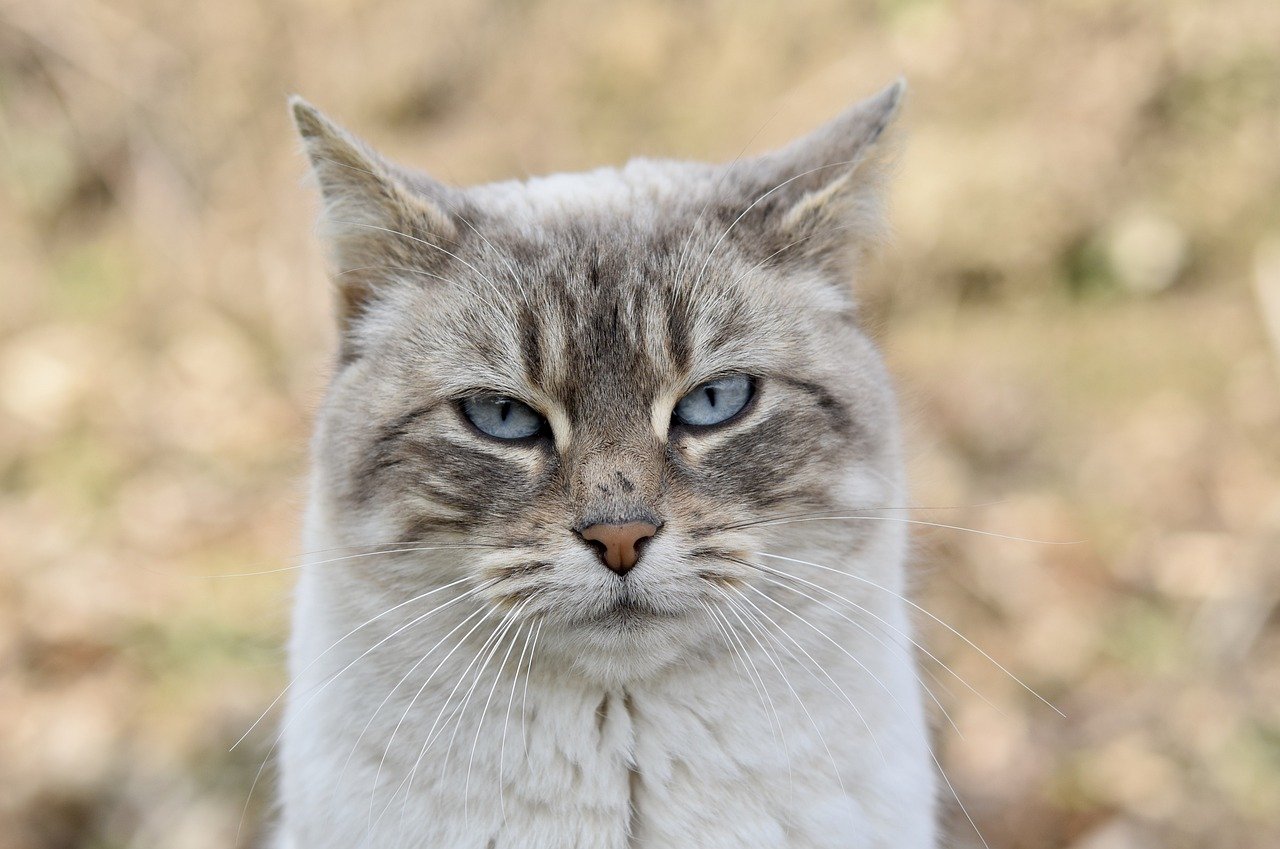
Preventative Care Strategies
When it comes to our beloved senior pets, prevention is always better than cure. Just like us, as pets age, their skin becomes more sensitive and susceptible to various issues. Implementing effective preventative care strategies can make a world of difference in maintaining their skin health and overall well-being. Regular check-ups with your veterinarian are essential; these visits can help catch potential problems before they escalate. Think of it like a routine tune-up for your car—regular maintenance can save you from costly repairs down the road.
Another key aspect of preventative care is proper grooming. Just imagine how tangled and uncomfortable your hair would feel if you never brushed it! Regular grooming not only keeps your pet looking good but also helps to detect any unusual lumps, bumps, or skin irritations early on. Brushing your pet’s coat can remove dead hair, dirt, and allergens that may be lurking, which can contribute to skin problems. Additionally, bathing your pet with a gentle, hypoallergenic shampoo can help keep their skin clean and hydrated. However, it’s important not to over-bathe, as this can strip the skin of its natural oils.
In addition to grooming, maintaining a balanced diet is crucial for your senior pet's skin health. Just like humans, pets require a variety of nutrients to keep their skin and coat healthy. Ensure that their diet includes high-quality proteins, essential fatty acids, and vitamins. If you suspect that your pet might have food allergies, consult your vet about conducting an elimination trial to identify any problematic ingredients. This can be a game-changer for pets suffering from skin irritations related to food allergies.
Lastly, consider environmental factors that might be affecting your pet’s skin. Allergies can be triggered by pollen, dust, and even household cleaners. Keeping your home clean and using pet-safe cleaning products can help minimize exposure to these allergens. You might also want to invest in an air purifier to help reduce airborne irritants. After all, a clean environment contributes significantly to your pet’s overall comfort and health.
- How often should I take my senior pet to the vet? It's recommended to schedule vet visits at least twice a year for senior pets to monitor their health closely.
- What grooming routine is best for my senior pet? Regular brushing at least once a week is ideal, with baths every 4-6 weeks using gentle, hypoallergenic products.
- Can diet really affect my pet's skin health? Absolutely! A balanced diet rich in essential fatty acids and proteins can significantly improve skin condition and coat quality.
- What signs indicate my pet may have a skin issue? Look for excessive scratching, redness, swelling, or unusual odors, which can indicate underlying skin problems.
Regular Vet Check-Ups
When it comes to caring for our beloved senior pets, are not just recommended; they are essential. As pets age, their bodies undergo numerous changes, and these changes can lead to a variety of health issues, including skin problems. Just like how we visit the doctor for routine check-ups, our furry friends need the same level of care to ensure they remain healthy and comfortable.
During these check-ups, veterinarians conduct thorough examinations that can help identify any underlying skin conditions that might not be immediately visible. For example, a vet might notice signs of allergic reactions or early-stage infections that could escalate if left untreated. Early detection is key, as it allows for timely intervention, which can make all the difference in your pet's comfort and quality of life.
Moreover, regular visits to the vet provide an opportunity for pet owners to discuss any changes they’ve noticed in their pet’s behavior or health. Have they been scratching more than usual? Is there a new lump or bump? These observations can be crucial in pinpointing potential skin issues. The vet can then recommend appropriate tests, treatments, or lifestyle adjustments to help manage these conditions effectively.
Another benefit of routine vet check-ups is the chance to discuss preventative care strategies. This includes recommendations for dietary changes, supplements, or even specific grooming techniques that can help maintain skin health. For instance, some pets may benefit from Omega-3 fatty acids in their diet, which can improve skin condition and reduce inflammation.
To illustrate the importance of these check-ups, consider the following table that outlines common skin issues detected during vet visits:
| Skin Issue | Symptoms | Recommended Action |
|---|---|---|
| Allergies | Itching, redness, inflammation | Identify allergens, consider allergy testing |
| Infections | Redness, swelling, discharge | Antibiotics or antifungal treatments |
| Skin Tumors | Lumps, changes in skin texture | Biopsy and further diagnostics |
In summary, regular vet check-ups are a vital part of maintaining your senior pet's health, especially concerning skin issues. By staying proactive and attentive, you can help ensure that your furry companion enjoys their golden years with minimal discomfort. So, don’t wait for a problem to arise; schedule that check-up today and give your pet the gift of good health!
- How often should I take my senior pet to the vet?
It’s generally recommended to take senior pets for check-ups at least twice a year, but your vet may suggest more frequent visits based on your pet's health. - What signs should I look for that indicate my pet needs to see the vet?
Look out for excessive scratching, changes in appetite, unusual lumps or bumps, or any changes in behavior or energy levels. - Can I manage my senior pet's skin issues at home?
While some minor skin issues can be managed at home with proper grooming and diet, always consult your vet for persistent or severe problems.
Proper Grooming Techniques
Grooming is not just about keeping your senior pet looking fabulous; it’s a vital part of their health and well-being. As pets age, their skin and coat can become more sensitive, and regular grooming helps to keep these issues at bay. Think of grooming as a bonding experience; it’s a chance for you to check for any unusual changes in their skin or coat while giving them some much-needed TLC.
One of the first things to consider is the type of grooming tools you use. For senior pets, especially those with thinning or sensitive skin, soft-bristled brushes and gentle combs are essential. These tools help prevent skin irritation while effectively removing loose fur and dirt. Additionally, using a rubber grooming mitt can stimulate circulation and provide a soothing massage, which many senior pets absolutely adore!
When it comes to bathing, less is often more. Senior pets have natural oils in their skin that help protect against dryness and irritation. Bathing too frequently can strip these oils away, leaving their skin vulnerable. Aim for a bath every 4 to 6 weeks unless your vet recommends otherwise. Use a mild, hypoallergenic shampoo designed specifically for pets to avoid any further irritation. Remember, the water should be lukewarm—too hot or too cold can be uncomfortable for your aging companion.
Moreover, pay attention to the ear and nail care. Older pets may have a harder time grooming themselves, leading to dirty ears and overgrown nails. Regularly check their ears for wax buildup or signs of infection, and clean them gently with a vet-recommended solution. As for their nails, if you hear them clicking on the floor, it’s time for a trim. Keeping their nails short not only prevents discomfort but also helps maintain their balance and mobility.
Lastly, don’t forget about the importance of hydration. A well-hydrated pet is a healthy pet, and proper hydration can contribute to skin health. Make sure your senior pet has access to fresh water at all times, and consider adding moisture-rich foods to their diet if recommended by your vet. This simple step can make a significant difference in their skin condition and overall comfort.
- How often should I groom my senior pet? Grooming frequency depends on the breed and coat type, but generally, aim for at least once a week.
- What if my pet resists grooming? Start slowly and use treats to create a positive association. Patience is key!
- Are there specific products I should use for senior pets? Yes, look for gentle, hypoallergenic shampoos and soft grooming tools designed for sensitive skin.
Frequently Asked Questions
- What are the most common skin issues in senior pets?
Senior pets often face a variety of skin issues, including allergies, infections, and tumors. These conditions can manifest as itching, redness, or even hair loss. It's important to monitor your pet closely for any changes in their skin health.
- How can I identify if my senior pet has allergies?
Look for signs such as excessive scratching, licking, or biting at their skin. Redness and inflammation are also common indicators. Pay attention to any environmental changes or new foods that may have triggered these reactions.
- What are environmental allergies, and how can I manage them?
Environmental allergies in pets are caused by allergens like pollen, dust, and mold. To manage these, try to limit your pet's exposure by keeping them indoors during high pollen seasons, regularly cleaning their living space, and using air purifiers.
- Can food allergies develop in older pets?
Yes, food allergies can develop at any age, but they are particularly common in senior pets. Symptoms may include gastrointestinal upset and skin irritations. An elimination diet can help identify the offending ingredients.
- How can I prevent skin infections in my senior pet?
Regular grooming is key to preventing skin infections. Ensure your pet is bathed and brushed frequently to remove dirt and debris. Also, keep an eye on any cuts or abrasions, as these can become infected if not treated promptly.
- Why are regular vet check-ups important for senior pets?
Routine veterinary visits are essential for early detection of skin problems and other health issues. Your vet can provide tailored advice and treatments to maintain your pet's skin health and overall well-being.
- What grooming techniques should I use for my senior pet?
Use gentle brushes and avoid harsh shampoos that can irritate the skin. Regularly check for mats and tangles, especially in long-haired breeds, as these can trap moisture and lead to infections. A consistent grooming routine helps keep their skin healthy!



